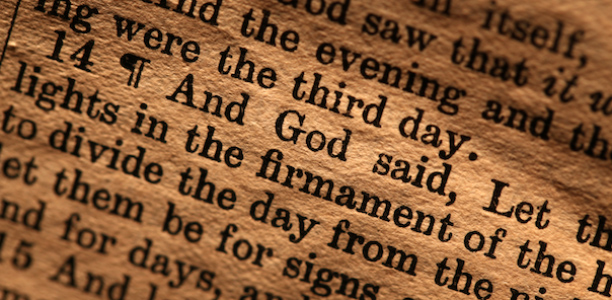By David Faust
 The sense of hearing is one of God’s great creative achievements.
The sense of hearing is one of God’s great creative achievements.
My dog knows visitors are approaching our house long before I hear their footsteps on the sidewalk. Owls have large ear holes set at slightly different heights, above and below eye level, enabling them to determine the precise direction of a scurrying mouse in less than one hundredth of a second. Elephants not only have big ears—their feet sense vibrations from other elephants stomping on the ground as far as five miles away.
Through a process called echolocation, bats locate prey by emitting ultrasonic sounds and measuring the length of time before the sounds echo back. However, a modest creature known as the greater wax moth has the keenest hearing of any known animal. It can hear sound frequencies 15 times quieter than those audible to human ears. The moth needs its extra-keen sense of hearing in order to outwit its main predator—the bat!
In our relationship with God, a different kind of hearing is required.
The God Who Listens
Hannah prayed so earnestly for God to give her a baby that the old priest, Eli, wondered if she was drunk. She defended her actions by saying, “I have not been drinking wine or beer; I was pouring out my soul to the Lord” (1 Samuel 1:15). The Lord heard her prayer, and “in the course of time Hannah became pregnant and gave birth to a son. She named him Samuel, saying, ‘Because I asked the Lord for him’” (v. 20).
Samuel sounds like the Hebrew for “heard by God.” Whenever Hannah called her son’s name, she remembered how God heard her prayers.
Remarkably, after waiting so long for a child, Hannah decided to dedicate Samuel to the work of the Lord. She took him to Eli so he could live and work at God’s house. She said, “I prayed for this child, and the Lord has granted me what I asked of him. So now I give him to the Lord” (vv. 27, 28). Each year Hannah visited her son and brought Samuel a little robe she had made—presumably each year’s robe a size bigger than the last one. In time God blessed her with three other sons and two daughters (2:18-21).
The God Who Speaks
“In those days the word of the Lord was rare” (3:1), but one night God called the young boy by name: “Samuel, Samuel!” At first Samuel didn’t know how to respond, but Eli coached him: “If he calls you, say, ‘Speak, Lord, for your servant is listening’” (vv. 2-10). Samuel followed Eli’s instructions, and thus began Samuel’s prophetic work. “The Lord was with Samuel as he grew up, and he let none of Samuel’s words fall to the ground” (v. 19).
God has spoken “at many times and in various ways,” and ultimately “he has spoken to us by his Son” (Hebrews 1:1, 2). God speaks through creation, for “the heavens declare the glory of God” (Psalm 19:1). He speaks through Scripture, which is “God-breathed” (2 Timothy 3:16). He speaks through the preaching of his Word, the counsel of wise friends, the guidance of divine providence, and the quiet prompting of the Holy Spirit who helps us apply biblical truth.
God hears us. Do we hear him? Amid all the clatter and clamor of today’s competing messages, are we willing to quiet our hearts and say sincerely, “Speak, Lord, for your servant is listening”?
David Faust serves as the Associate Minister at East 91st Street Christian Church in Indianapolis, Indiana.
The Lookout’s Bible Reading Plan for May 3, 2015
Use this guide to read through the Bible in 12 months. Follow David Faust’s comments on the highlighted text in every issue of The Lookout.
Mark 9:1-13
1 Corinthians 15:29-58
Psalm 93
Ruth 2, 3
Mark 9:14-32
1 Corinthians 16
Psalm 94
Ruth 4
Mark 9:33-50
2 Corinthians 1:1-11
Psalm 95
1 Samuel 1, 2
Mark 10:1-16
2 Corinthians 1:12-24
Psalm 96
1 Samuel 3–5
Mark 10:17-34
2 Corinthians 2
Psalm 97
1 Samuel 6–8
Mark 10:35-52
2 Corinthians 3
Psalm 98
1 Samuel 9, 10



Comments: no replies